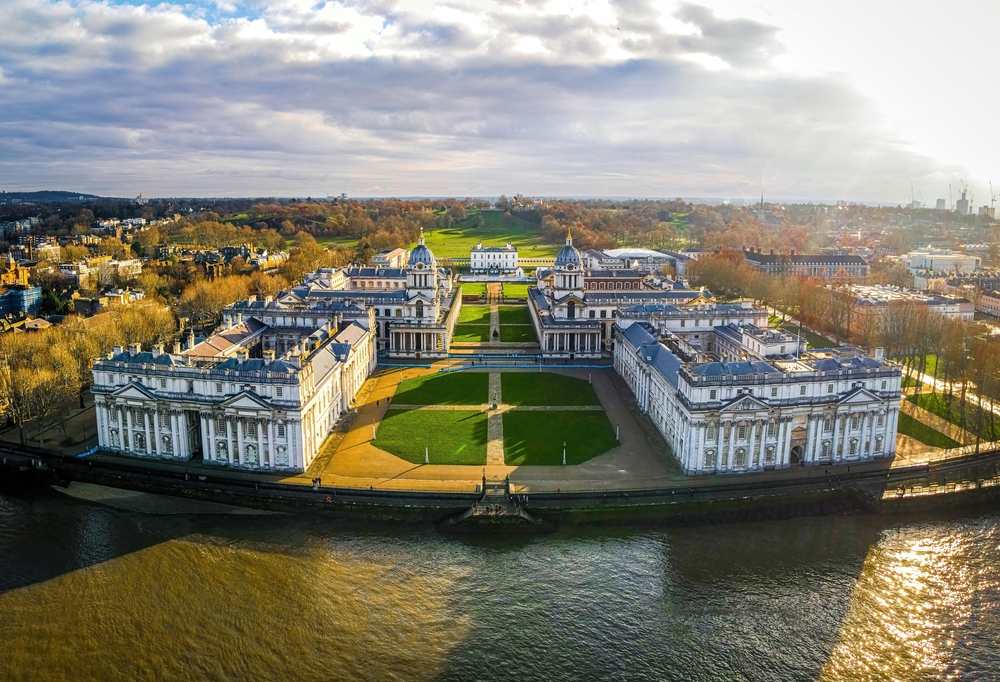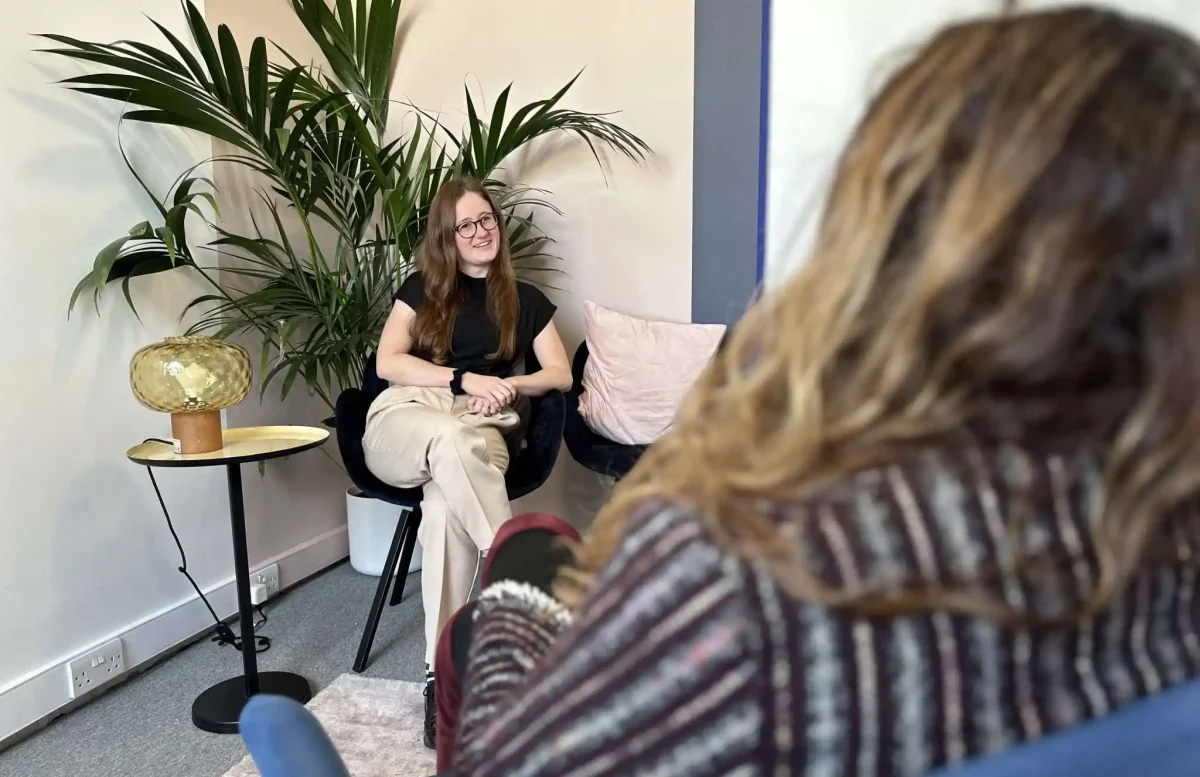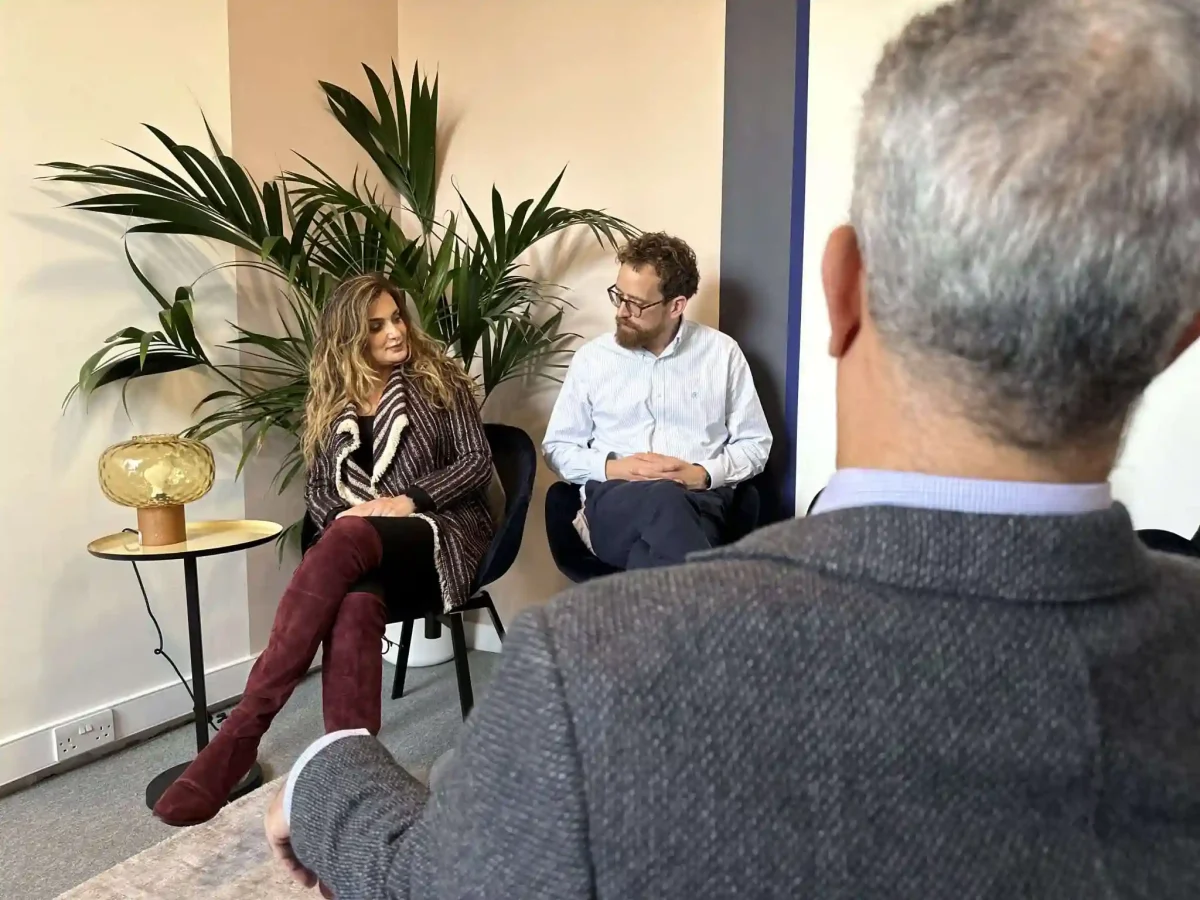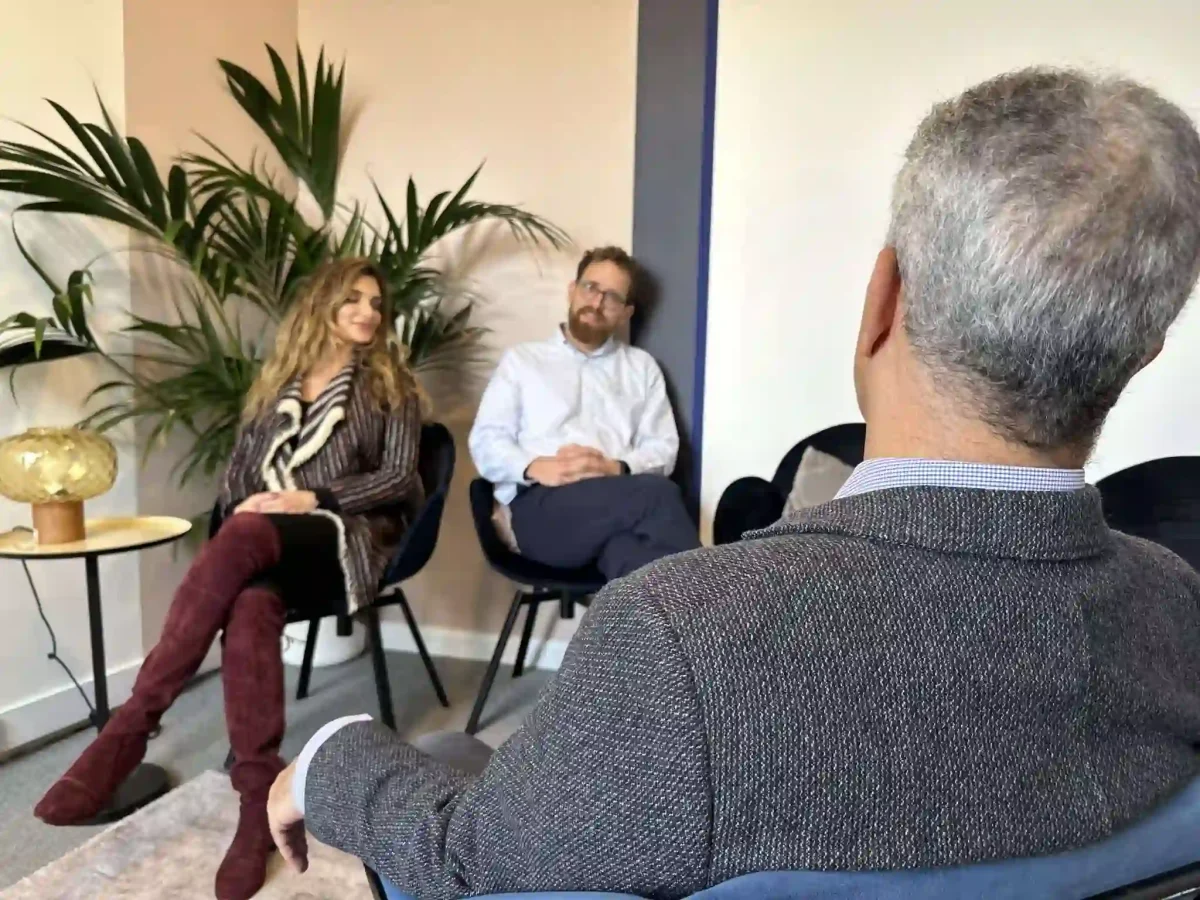
Find Addiction Support at CATCH Recovery Greenwich
At CATCH Recovery, we offer addiction treatment and rehab in Greenwich, and provide a comprehensive range of programmes tailored to help individuals achieve long term recovery. Whether you are struggling with alcohol addiction, drug addiction, or behavioural addictions, our evidence-based approach ensures that you receive the highest standard of care to help you overcome addiction.
We offer:
- Online Rehab Programmes – Flexible, confidential addiction treatment from the comfort of your home.
- In-Person Therapy – One-to-one and group therapy at our Greenwich treatment centre.
- Residential Rehab Referrals – Direct access to our residential programmes through our world-leading Castle Health Centres across the UK.
Our Location in Greenwich
The Practice Rooms, 15A Nelson Rd, London SE10 9JB
Discover Our Locations
Find your nearest CATCH Recovery clinic here.
Our Rehab in Greenwich Provides Expert-Led, Flexible Rehab Programmes
We offer:
✔ 1:1 therapy & counselling – individual therapy sessions, which can be in-person or online, we provide personalised support to address underlying causes that drive substance abuse and other behaviours.
✔ Online rehab services – we offer tailored treatment programmes as well as group therapy, providing structured outpatient programmes from the comfort of your own home.
✔ Support for Families – we know addiction can impact the family members and loved ones of the person suffering from addiction, which is why we offer family therapy and couples therapy so that everyone can heal and grow in recovery.
✔ Residential rehab referrals – access to our world-leading Castle Health inpatient facilities for more intensive and comprehensive care in a residential setting.
Your Recovery Options in Greenwich
One-to-One Addiction Therapy with Purva – Specialist Addiction Counsellor
Purva is a highly experienced Counselling Psychologist, offering therapy in private practice through clinical supervision.at our addiction treatment and rehab in Greenwich and online.
How Therapy Can Help:
- Tailored therapeutic approaches to meet individual needs and goals.
- Support in overcoming personal challenges and navigating difficult emotions.
- Building resilience and enhancing emotional well-being.

Why Choose Purva?
- Over 20 years of experience, with a strong background in working with drug and alcohol addictions within public sector settings.
- Extensive experience helping clients achieve personal transformation and growth providing a safe and secure environment for people to connect with the healing process.
- A deep belief that every individual has the capacity for change and development, tailoring therapy to the client’s unique needs.
Frequently Asked Questions
-
How do I know if I need rehab?
If substance use or compulsive behaviours are affecting your health, relationships, or work, seeking help is crucial. We offer a free assessment to determine the best treatment plan for you.
-
How do I know which recovery option will suit me?
Therapy is ideal for those seeking deep emotional support and psychological tools to help with overall well-being. Coaching is helpful for guidance beyond addiction, particularly for long-term recovery goals. Online rehab provides structured support with added flexibility, while residential rehab offers 24/7 care for those with severe addictions.
-
Is online rehab as effective as in-person treatment?
Yes! Studies show that virtual addiction therapy can be just as effective as in-person rehab, depending on the individual’s commitment and support system.
-
Will my treatment be confidential?
Absolutely. Privacy is a top priority at Catch Recovery, and all treatment sessions remain confidential.
-
How soon can I start treatment?
You can start immediately! Call us today for a free consultation.
-
Can I do both therapy and online rehab?
Yes! Therapy will be combined with the chosen CATCH Recovery programme to strengthen an individual’s recovery journey.
-
Do you offer online sessions?
Absolutely! Both therapy and rehab programmes are available online for maximum flexibility.
-
How can I arrange urgent rehab support?
If you need immediate care, we can offer referrals to trusted inpatient treatment centres for fast access to support.
Why Choose CATCH Recovery Greenwich?
Choosing the right treatment programme for you is the first step towards long-lasting recovery. At CATCH Recovery’s addiction treatment and rehab in Greenwich, we understand that addiction is a complex illness, and that to achieve recovery, you also need to understand the underlying reasons behind it, confront any mental health conditions that may co-exist with it, and give you the tools to change addictive behaviours. Here’s why CATCH Recovery is the top choice for rehab in Greenwich:
Flexible Treatment Options – Choose from online rehab, face-to-face therapy, or residential rehab referrals.
Expert Team – Our network of specialists include psychologists, addiction specialists, and medical professionals.
Confidential & Safe – We offer a judgment-free environment to support your healing journey.
Holistic Therapy Approaches – Combining psychological therapeutic approaches, such as cognitive behavioural therapy (CBT), dialectical behavioural therapy (DBT), and 12-step programs with mindfulness and wellness practices.
Seamless Residential Rehab Admissions – Fast and hassle-free referrals to Castle Health residential rehab facility.
Our evidence-based approach ensures that clients receive personalised addiction treatment that leads to lasting recovery!

Download Our Brochure
Our Addiction Treatment Services in Greenwich
At Catch Recovery addiction treatment and rehab in Greenwich, we understand that every individual’s recovery journey is unique. That’s why we offer a range of treatment options from our outpatient services to referrals to inpatient treatments, to suit different needs and lifestyles.
Online Rehab – Flexible & Effective Virtual Addiction Treatment
Online rehab is ideal for individuals who:
- Require flexibility to fit around their normal life activities like work or family commitments.
- Prefer a discreet recovery process from the comfort of home.
- Need accessible therapy due to mobility limitations or location constraints.
What Our Online Rehab Programme Offers
- One-to-One Video Therapy Sessions – Speak to an expert therapist via secure video calls.
- Online Group Therapy – Connect with others in a supportive online setting.
- Personalised Recovery Plans – Individualised strategies based on your addiction history.
- Relapse Prevention & Support – Ongoing counselling to sustain sobriety.
Contact Us
Is online rehab right for you? Contact us today to discuss your options!
In-Person Addiction Therapy – Professional Care in Greenwich
For those who benefit from face-to-face support, our in-person therapy offers comprehensive treatment for substance and behavioural addictions.
In-Person Therapy Options:
- One-on-One Therapy – Confidential sessions with a professional therapist tailored to your needs.
- Group Therapy – Build a support system and share experiences with peers in a safe setting.
- Family Therapy – Helping families understand addiction and support their loved ones.
- Behavioural Therapy Approaches – Includes CBT, DBT, and Motivational Interviewing.
Located in the heart of Greenwich, our clinic provides a structured and supportive environment for addiction recovery.
Referrals to Residential Rehab at Castle Health Centres
For individuals requiring medical detox and round-the-clock care, we facilitate seamless referrals to Castle Health Centres, which offer residential rehabilitation programmes across the UK.
Why Choose Residential Rehab?
- 24/7 Medical Supervision – Ensures safe, medically managed detox to ease withdrawal symptoms.
- Structured Therapy Programmes – Includes individual and group therapy, fitness sessions, and holistic treatments.
- Supportive Community – Recover with like-minded individuals in a healing environment.
- Post-Rehab Aftercare – Ongoing therapy and relapse prevention support no matter where you have had your residential treatment.
Castle Health Centres are leading addiction treatment facilities with a proven track record of success!
Conditions & Addictions We Treat
Substance Addictions
Alcohol Addiction – Our alcohol rehab options range from medically managed detox, through residential treatment, addiction therapy, and relapse prevention.
Drug Addiction – Our drug rehab treatment options cover cocaine, heroin, cannabis, prescription drugs, and other addictive substances abuse.
Behavioural Addictions
Gambling Addiction – Therapy for compulsive betting and financial damage control.
Gaming & Internet Addiction – Managing compulsive screen use and online behaviours.
Sex & Porn Addiction – Managing compulsive sexual behaviours.
Dual Diagnosis Treatment
We recognise that many people with addiction also struggle with mental health conditions. Our treatment plans integrate support for conditions such as:
Anxiety & Depression – Therapeutic interventions for underlying mental health issues.
PTSD & Trauma Recovery – Specialised therapy to process trauma and prevent relapse.
Aftercare tailored to your needs to ensure that you or your loved one gets the right support after leaving inpatient rehab to continue on the pathway of recovery.
An initial comprehensive screening to conclude if inpatient residential rehab for drug and alcohol misuse, or behavioural addictions is the right step.
Referral to one of our residential world-leading UK addiction treatment centres that specialise in treating alcohol and drug addiction to help facilitate long term recovery.
Individual therapy prior to rehab to provide a smooth transition into residential care and to support your mental health when you need it most.
📞 Call Us
Contact our team to find out more about our residential rehab treatment options.



Why Choose Addiction Therapy & Online Rehab in Oxford?
Personalised, Professional Care
- Tailored treatment plans for individual addiction recovery needs.
- Safe, confidential, and non-judgmental therapy environment at our rehab in Oxford.
Multiple Recovery Options
- 1:1 Therapy, Recovery Coaching, Online Rehab, and Residential Rehab Referrals.
- Support that addresses the emotional, psychological, and behavioural aspects of addiction.
Flexible & Accessible Support
- In-person rehab in Greenwich.
- CATCH Recovery’s online rehab means help is available wherever you are.
- Referrals to inpatient rehab for those needing more comprehensive treatment.
By addressing both addiction and mental health, we provide holistic recovery solutions for long-term success!
How Our Addiction Treatment Works
Step 1: Free Confidential Consultation
Contact us for a confidential phone assessment to discuss your situation and unique needs.
Step 2: Personalised Treatment Plan
Based on your assessment, we recommend a customised rehab programme (online, in-person, or residential).
Step 3: Therapy & Recovery Support
Begin one-to-one therapy, group counselling, and addiction recovery sessions.
Step 4: Long-Term Aftercare & Relapse Prevention
Continue ongoing support, therapy check-ins, and lifestyle coaching.
Recovery is a journey, not a destination. We are here for you every step of the way!
Start Your Recovery Journey with Catch Recovery Greenwich
You don’t have to fight addiction alone. Whether you need online rehab, in-person therapy, or residential treatment, we are here to help.
- Trusted Experts in Addiction Recovery
- Flexible Online & In-Person Therapy
- Fast Referrals to Residential Rehab

Contact Us
Free resources for alcohol and drug addiction, Greenwich
If you live in Greenwich and are looking for free support and help, you can visit the below helplines for further advice.
- Alcoholics Anonymous (AA): Find a meeting.
- Narcotics Anonymous: Local meetings.